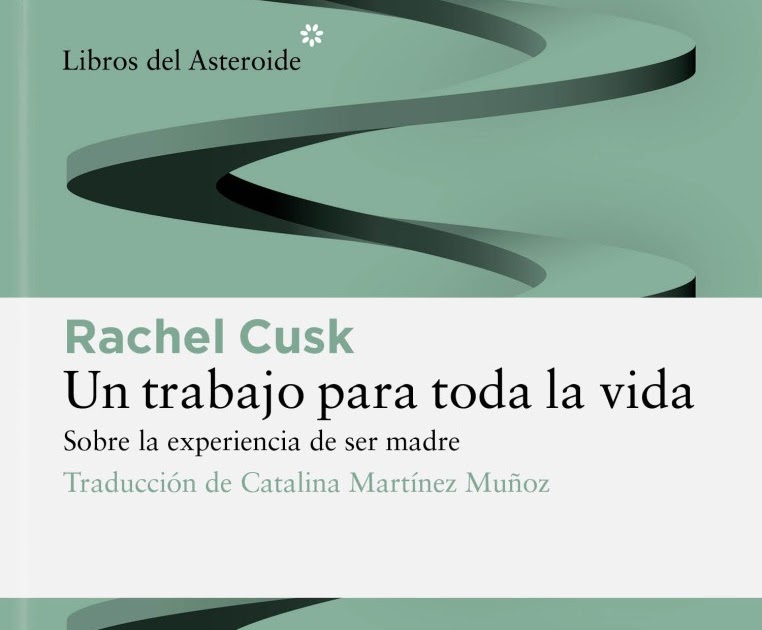
Original Language: English.
Títulu Original: A Life’s Work.
Translation: Catalina Martínez Muñoz.
Year of publication: 2001-2007.
Valoración: It is allowed to read
Rachel Cusk wrote A lifetime job In 2001. I want to assume that, then, she was a writer with little impact and that she needed, in some way, share her experiences. Continuing with the assumptions, when any of his subsequent work (some review here) obtains a more or less generalized recognition (within this Liliputiense Mundillo), the usual process of progressive curiosity of the public for the previous work is operated by the previous work, the recovery – prior legal or bureaucratic issues – of this, etc. This is a certain specialty of asteroid books, a notable editorial that usually presents little known authors (current and not so much). Within the framework of this procedure, recovering this work more than two decades after its first publication responds to this logic. What has not left me so much is that the author incorporated, already in 2007, two introductory texts, which in this edition have been included.
Because these two introductions distort the work, they seem to pretend to justify it and almost excuse themselves for its content, and to some extent they condition their reading, as if the author partially renegates of her original writing, or needed to explain her intentions before possible bad interpretations. It seems that there were, at the time. You didn’t have to wait for Elon Musk to get with Twitter to uncover hatred, apparently. Sorry, but my opinion is that this was not necessary in 2007, and in 2025 it is already frankly expendable.
Basically, A lifetime job It is like a somewhat disorderly dietary of experiences and reflections related to both the last phases of pregnancy and childbirth and the first years of child care. It is written, therefore, in a stubborn first person, which is how these books are usually written. But it is that those sensations that manifest, from the physical, inevitable consequences, to the mental process, which I fear that also many common places, have not provided any novelty about what is a universally experienced and universally accepted sensation. Well: maybe not so universally. Not so many mothers play a profession or an economic situation like Cusk’s, which can allow them to have kangaroos and caregivers (something tendentious, by the way, the episode of the incident with the Spanish caregiver). So if that perception of the personal situation causes those sensations, if that reflection induces unconventional feelings – rejection, boredom, overwhelms – but these circumstances do not make them reprehensible, but manifestly logical, Cusk floods their current of topic awareness that, despite their honesty and sincerity, seem extracted from a somewhat scholarly and reluctant version Bridget Jones, mother. All of which reduces the attractiveness of the text.
Other books by Rachel Cusk reviewed at Ulad: here
Source: https://unlibroaldia.blogspot.com/2025/04/rachel-cusk-un-trabajo-para-toda-la-vida.html


